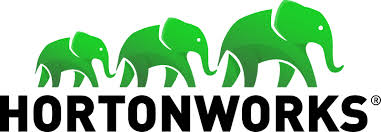IBM and Hortonworks go steady with OEM deal


After dating for a couple years through the Open Data Platform Initiative (ODPi), IBM and Hortonworks have decided to go steady. In an announcement headlining the opening keynote of 2017 DataWorks Summit in San Jose this morning, IBM and Hortonworks have committed to multi-year OEM agreements for reselling specific Hadoop and data science products. Specifically, IBM will resell the Hortonworks Data Platform (HDP) as its official Hadoop product, while Hortonworks will resell IBM's Data Science Experience (DSX) and BigSQL as part of specially targeted versions of HDP.
The agreement also extends to product support, where each still handles Levels 2 and 3 support for products they originate, with the seller (IBM for HDP, and Hortonworks for DSX) handling Level 1 support for the products they market. In so doing, IBM deprecates its BigInsights platform while Hortonworks gets to add data science and data warehouse optimization SKUs to its portfolio.
The announcement didn't exactly come out of the blue, as both have become acquainted through their ODPi experience. For IBM, ODPi was the first step in retrenching from Hadoop development; IBM had previously found it challenging to keep pace with incorporating the latest Apache Hadoop revisions.
Instead, IBM began seizing the initiative with Spark where it committed over 3500 developers, not to mention its ongoing efforts developing cognitive computing with Watson. That left IBM's commitment to Hadoop unclear. IBM was ramping up big data analytics, Spark, and Watson cognitive computing services that didn't incorporate Hadoop, while keeping development and marketing of BigInsights on autopilot.
For Hortonworks, the IBM OEM deal gives them more feet on the street. And it also gives Hortonworks the chance to develop more targeted solutions as it positions itself beyond Hadoop toward becoming a platform provider supporting big data management, IoT, and data science in and out of the cloud. Hortonworks is hardly alone in transitioning beyond Hadoop, as Cloudera and MapR are also seeking to broaden their appeal.
While Hortonworks did not commit to any specific product plans, BigSQL would likely become the focus of a data warehousing-oriented SKU. In practice, it would take a form similar to Pivotal's HDB product that pairs its HAWQ SQL engine with HDP. The major difference is that, in addition to certifying IBM to resell a BigSQL HDP product, Hortonworks would also sell it as well. Another product entry is a tailored version of HDP paired with IBM's DSX, which allows Hortonworks to enter the market for data science and machine learning without having to take Cloudera's path in bootstrapping its own product.
Today's announcement was a logical culmination for IBM, given that with ODPi, BigInsights was already largely molded in HDP's image. The challenge for IBM is that a number of its BigInsights customers also have integrations with other IBM products such as Guardium that are not certified on HDP. While the short answer would be to port, IBM's embrace of HDP means that it is also investing the future with Apache tools (e.g., Ranger, Atlas) that are native to HDP. And so, while IBM's adoption of HDP represents a demobilization of its Hadoop platform team, for data governance and security aspects of Hadoop development, it might conceivably ramp up development of new data governance and security products incorporating Atlas and Ranger.
One thing that won't happen: with the OEM deal, IBM will not be open sourcing BigSQL (the SQL engine that originated with DB2). For starters, refactoring the code that took decades to develop would waste too much time and money, and besides which, DB2 was never meant to be an open source product. We also believe that IBM has bigger plans for BigSQL beyond Hadoop, such as being able to query cloud storage or IoT data.
Of course, the operable question is where this all leads. Clearly, a couple years of dating have made both companies comfortable with sharing development plans. This is not the first such relationship for Hortonworks, as it has been a close Microsoft partner for over five years providing the Hadoop pillar for Azure HDInsight.
So now, Hortonworks is now operating closely with two players at opposite poles: IBM and Microsoft. And so down the line this could set the scene for a tug of war between both spheres of influence. Could this lead to an IBM acquisition? Either way, we don't expect Microsoft to drop its HDInsight or Azure Data Lake products. But the prospect of Hortonworks being drawn more closely into IBM's orbit certainly won't distract Microsoft's Cosmos DB group from further thoughts of gap filling and world domination.